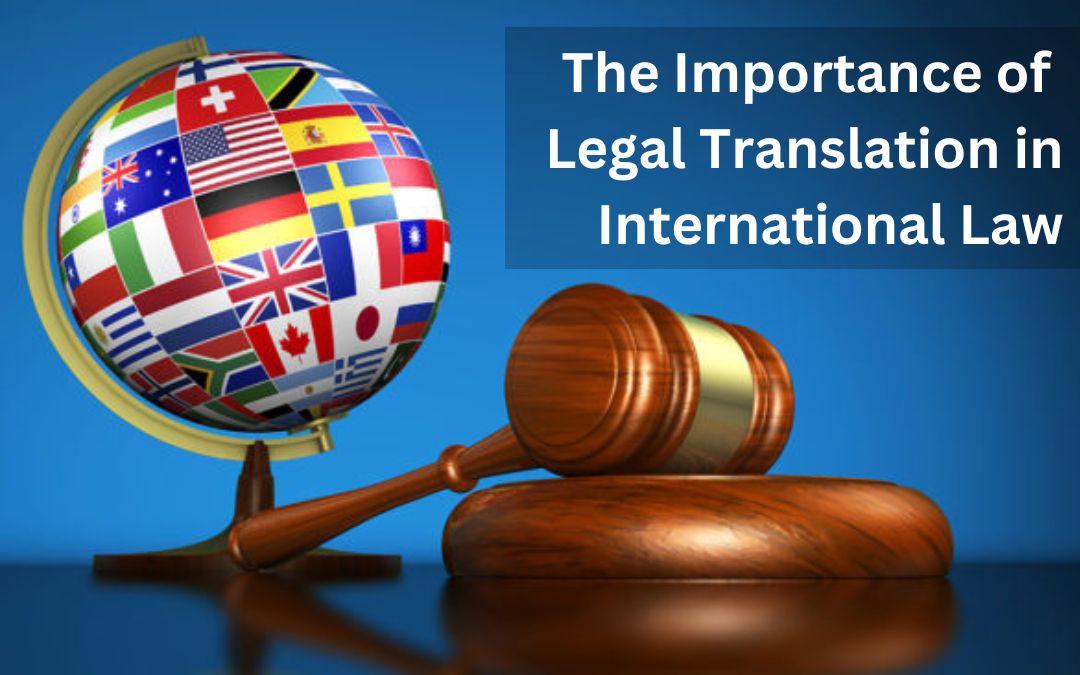In the intricate tapestry of international law, where every word holds profound significance, the role of legal translation cannot be overstated. As nations collaborate, trade, and sometimes dispute, clear and accurate communication becomes the bedrock of mutual understanding and cooperation. Legal translation, in this context, emerges as a linchpin, ensuring that legal documents, treaties, and agreements are understood uniformly across borders. Let’s delve deeper into the pivotal role of legal translation in the realm of international law.
The Nuances of Legal Translation
Legal translation is a specialized field that involves converting legal documents from one language to another while preserving their legal essence. It’s not just about linguistic accuracy but also about ensuring that the translated document holds the same legal weight and meaning as the original. Given the complexities of legal terminologies and the potential implications of misinterpretation, legal translation demands precision, expertise, and a deep understanding of legal systems.
Why Legal Translation is Crucial in International Law
- Treaties and Agreements: International law often revolves around treaties and agreements between nations. Legal translation ensures that all parties have a clear understanding of their rights, obligations, and the nuances of the agreement, regardless of their native language.
- Dispute Resolution: In cases of international disputes, whether they’re trade-related, territorial, or otherwise, legal translation plays a crucial role. Accurate translation of evidence, testimonies, and legal arguments ensures a fair trial and helps prevent potential miscarriages of justice.
- Trade and Commerce: As global trade flourishes, businesses often navigate the regulatory landscapes of multiple countries. Legal translation of contracts, licenses, and compliance documents ensures smooth business operations and reduces the risk of legal complications.
- Human Rights: International human rights documents, declarations, and conventions are foundational to global peace and cooperation. Legal translation of these documents ensures that they are universally understood and upheld.
- Immigration and Asylum: In matters of immigration, asylum, or refugee status, legal documents play a pivotal role. Legal translation ensures that applications, evidence, and testimonies are accurately represented in the legal proceedings of the host country.
Challenges in Legal Translation
- Varying Legal Systems: Different countries have different legal systems, each with its unique terminologies and concepts. Legal translation requires a deep understanding of both the source and target legal systems.
- Cultural Nuances: Beyond mere words, legal concepts can be deeply rooted in a country’s culture and history. Legal translation must navigate these nuances to ensure that the translated document is both legally accurate and culturally sensitive.
- Potential for Misinterpretation: Given the high stakes in international law, even a minor error in legal translation can have significant implications. This demands meticulous attention to detail and thorough proofreading.
The Way Forward: Best Practices
- Specialized Expertise: Legal translation should always be entrusted to professionals who specialize in the field. They bring a depth of knowledge and expertise that general translators might not possess.
- Collaboration: Legal translators should collaborate closely with legal experts, especially when navigating complex or unprecedented legal scenarios.
- Continuous Learning: The realm of international law is ever-evolving. Legal translators should engage in continuous learning to stay updated with the latest developments and best practices.
Conclusion
Legal translation, in the context of international law, is more than just a linguistic exercise; it’s a bridge between legal systems, cultures, and nations. It ensures that, despite linguistic barriers, nations can cooperate, collaborate, and sometimes, resolve conflicts. In the vast and intricate world of international law, where clarity and understanding are paramount, legal translation stands out as a beacon of precision, expertise, and mutual respect.

